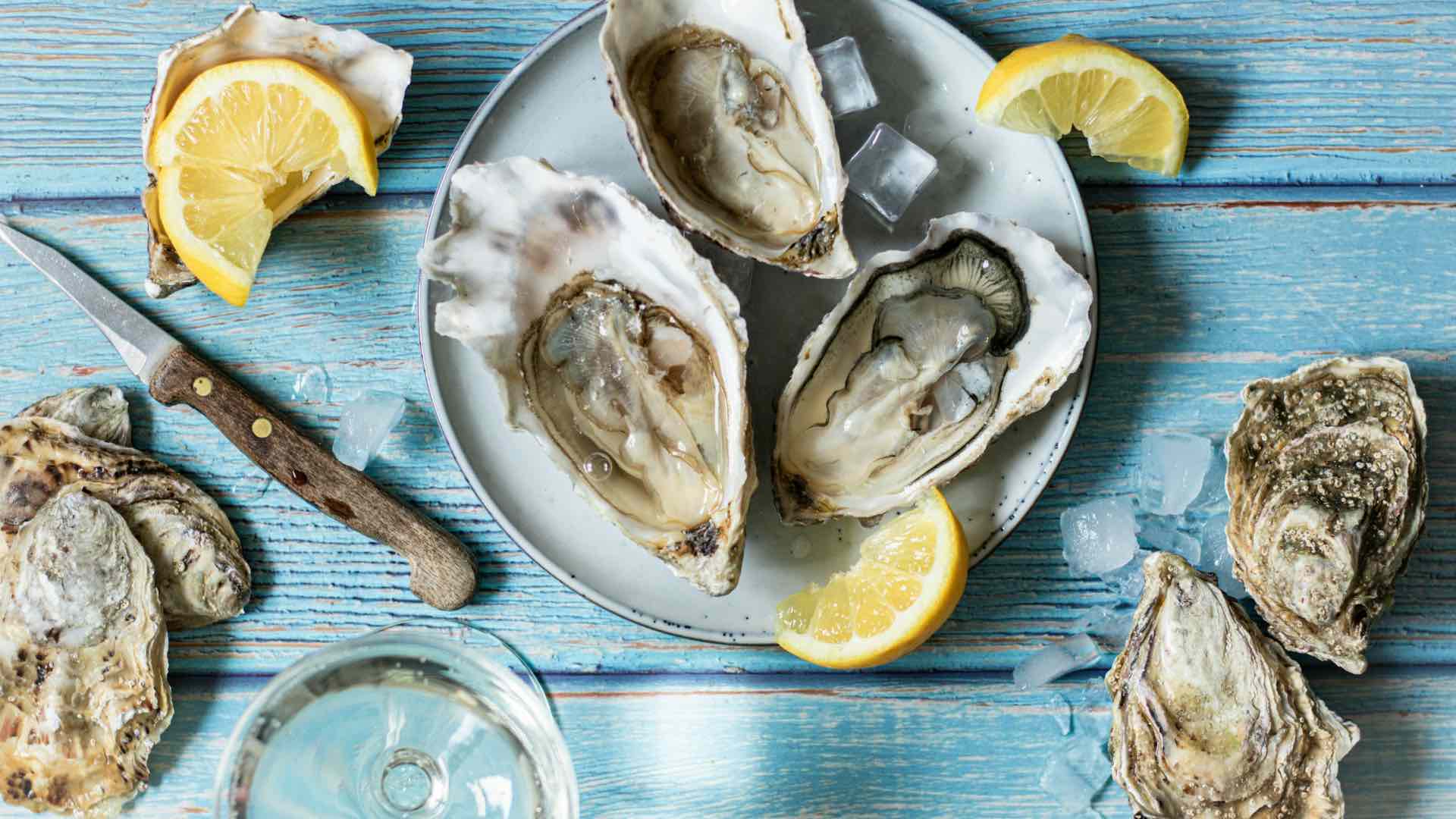Why Oysters Are The Secret Superfood You Need To Try

While the idea of oysters evokes a scene of seaside eateries and white wine pairings, these seafood superstars do much more for your health than elevating your summer vacation. Oysters, both raw and cooked, are seriously polarizing as far as their taste and texture. But as a superfood, there is no debating the impressive list of health and nutrition benefits they offer.
Oyster Benefits
Rich In Nutritional Value
Oysters are a nutrient-dense food, providing numerous health benefits due to their richness in essential vitamins, minerals, and antioxidants. Here's an overview of the key nutritional benefits of oysters:
Vitamins:
Minerals:
Other nutrients:
Additional benefits:
Heart Health
Oysters also greatly benefit heart health, with a variety of science-backed benefits.
- Lowers Cholesterol: Oysters are low in saturated fat and high in omega-3 fatty acids, which help reduce triglycerides and LDL ("bad") cholesterol.
- Blood Pressure Regulation: Potassium content in oysters helps lower blood pressure by balancing sodium levels and relaxing blood vessels.
- Anti-Inflammatory Effects: Omega-3 fatty acids and antioxidants in oysters reduce inflammation, which can contribute to cardiovascular disease.
- Improves Blood Lipid Profiles: Oysters' omega-3 fatty acids increase HDL ("good") cholesterol, reducing the risk of heart disease.
- Prevents Blood Clots: Omega-3 fatty acids inhibit platelet aggregation, lowering the risk of blood clots and stroke.
- Supports Healthy Blood Vessels: Vitamin D and omega-3 fatty acids in oysters help maintain healthy blood vessel function and flexibility.
- Reduces Cardiovascular Disease Risk: The combination of nutrients in oysters may lower the risk of heart attacks, strokes, and cardiovascular mortality.
- Supports Healthy Heart Rhythm: Magnesium and potassium in oysters help regulate heart rhythm and prevent arrhythmias.
Unique Antioxidant Properties
3,5-Dihydroxy-4-methoxybenzyl alcohol (DHMBA)
DHMBA is a unique and potent antioxidant exclusively found in oysters. It’s known for its strong protective effects: (1)
Other major antioxidants in oysters
Natural Mood Booster
Oysters, in addition to their reputation for being a libido-enhancer (2), can be incredible mood enhancers. Their mood-boosting benefits include:
Oysters contain a unique combination of nutrients that can help promote a boost in mood and support mental health. Here are some ways oysters can benefit mental well-being:
- Omega-3 fatty acids: EPA and DHA support brain health, reducing symptoms of depression and anxiety.
- Vitamin D: Essential for mood regulation, vitamin D deficiency has been linked to depression.
- Zinc: Plays a crucial role in neurotransmitter function, supporting mood stability.
- Serotonin: Oysters contain serotonin-boosting compounds, helping regulate mood, appetite, and sleep.
- Dopamine: Tyrosine, an amino acid in oysters, is converted into dopamine, supporting pleasure and reward processing.
- B Vitamins: B12, in particular, plays a role in synthesizing neurotransmitters, influencing mood.
- Antioxidants: DHMBA and other antioxidants reduce oxidative stress, promoting neural health.
- Magnesium: Helps regulate stress response, promoting relaxation and calmness.
- GABA: Oysters contain GABA-boosting compounds, supporting calmness and reducing anxiety.
Potential Risks
While oysters offer so many incredible benefits, there are real potential risks associated with consuming them. Here are some major concerns, especially with low quality oysters from questionable sources:
- Foodborne Illnesses:
- Mercury and Heavy Metal Contamination:
- Allergic Reactions:
- Overconsumption of Zinc and Copper:
- Interaction with Medications:
Raw Versus Cooked
As with many foods, especially from the sea, there is significantly more risk in consuming oysters raw vs. cooked. If you’re concerned with the quality or source of oysters, you may benefit from opting for cooked instead.
Cooking oysters:
Raw oysters can also have a negative affect on your microbiome:
Harnessing Food’s Healing Potential
Oysters are just one of the many nutrient-dense superfoods I recommend to those looking to optimize their health through a balanced and diverse diet. If you're seeking personalized nutrition guidance and want to explore how specific foods can support your wellness journey, consider booking a virtual consultation with our team. We’re here to help you achieve your health goals with tailored, expert advice.
Start Your Health Journey Today
FUNCTIONAL MEDICINE CONSULTATIONS FOR PEOPLE AROUND THE WORLD
- Ho, H. J., Aoki, N., Wu, Y. J., Gao, M. C., Sekine, K., Sakurai, T., ... & Hui, S. P. (2023). A Pacific Oyster-Derived antioxidant, DHMBA, protects Renal tubular HK-2 cells against oxidative stress via reduction of mitochondrial ROS production and fragmentation. International Journal of Molecular Sciences, 24(12), 10061.
- Maurya, N. K. (2022). Libido Boosting Functional Foods. In Recent Advances in Male Reproductive System. IntechOpen.
The information on this website has not been evaluated by the Food & Drug Administration or any other medical body. We do not aim to diagnose, treat, cure or prevent any illness or disease. Information is shared for educational purposes only. You must consult your doctor before acting on any content on this website, especially if you are pregnant, nursing, taking medication, or have a medical condition.
Our content may include products that have been independently chosen and recommended by Dr. Will Cole and our editors. If you purchase something mentioned in this article, we may earn a small commission.

BY DR. WILL COLE
Dr. Will Cole, DNM, IFMCP, DC is a leading functional medicine expert who consults people around the globe, starting one of the first functional medicine telehealth centers in the world. Named one of the top 50 functional and integrative doctors in the nation, Dr. Will Cole provides a functional medicine approach for thyroid issues, autoimmune conditions, hormonal imbalances, digestive disorders, and brain problems. He is also the host of the popular The Art of Being Well podcast and the New York Times bestselling author of Intuitive Fasting, Ketotarian, Gut Feelings, and The Inflammation Spectrum.

Gut Feelings
Healing The Shame-Fueled Relationship
Between What You Eat And How You Feel
